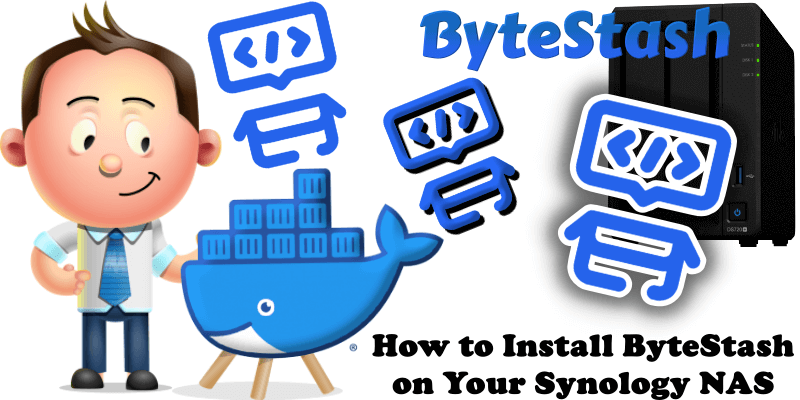
ByteStash is a self-hosted web application designed to store, organise, and manage your code snippets efficiently. With support for creating, editing, and filtering snippets, ByteStash helps you keep track of your code in one secure place. In this step by step guide I will show you how to Install ByteStash on your Synology NAS using Docker and Portainer.
STEP 1
Please Support My work by Making a Donation.
STEP 2
Install Portainer using my step by step guide. If you already have Portainer installed on your Synology NAS, skip this STEP. Attention: Make sure you have installed the latest Portainer version.
STEP 3
Go to File Station and open the docker folder. Inside the docker folder, create one new folder and name it bytestash. Follow the instructions in the image below.
Note: Be careful to enter only lowercase, not uppercase letters.
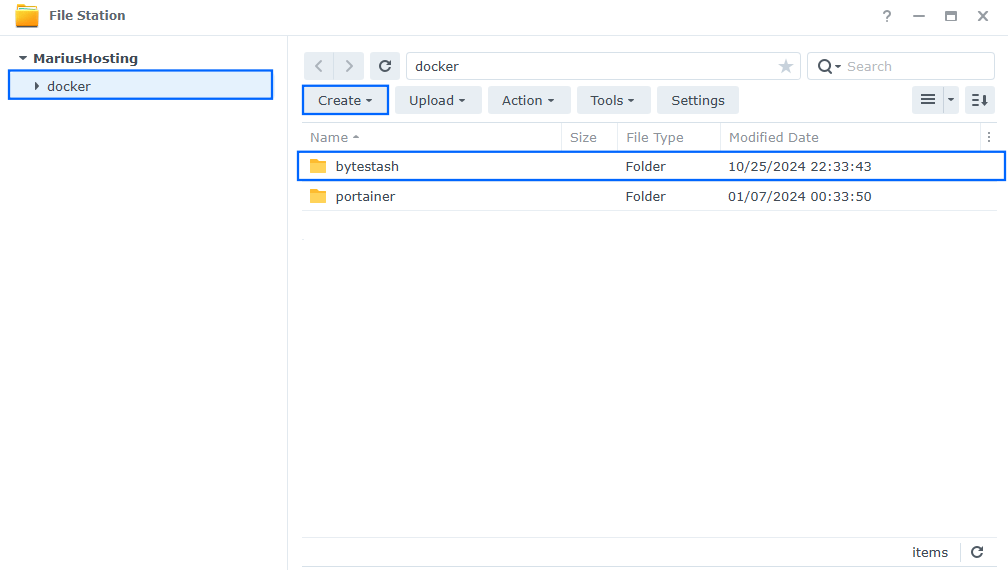
STEP 4
Log into Portainer using your username and password. On the left sidebar in Portainer, click on Home then Live connect. Follow the instructions in the image below.

On the left sidebar in Portainer, click on Stacks then + Add stack. Follow the instructions in the image below.

STEP 5
In the Name field type in bytestash. Follow the instructions in the image below.
services:
bytestash:
image: ghcr.io/jordan-dalby/bytestash:latest
container_name: ByteStash
healthcheck:
test: ["CMD-SHELL", "nc -z 127.0.0.1 5000 || exit 1"]
interval: 10s
timeout: 5s
retries: 3
start_period: 90s
volumes:
- /volume1/docker/bytestash:/data/snippets:rw
environment:
JWT_SECRET: q9TAW5pK5O9DqAWhY18XupmtlZk0ULRmjroiZcfvJkvZduSYzrzc0FtM2yfHEeyB
TOKEN_EXPIRY: 24h
ALLOW_NEW_ACCOUNTS: true #or false
ports:
- 7654:5000
restart: on-failure:5
Note: Before you paste the code above in the Web editor area below, change the value for JWT_SECRET. (Generate your own 64 length JWT_SECRET.)

STEP 6
Scroll down on the page until you see a button named Deploy the stack. Click on it. Follow the instructions in the image below. The installation process can take up to a few minutes. It will depend on your Internet speed connection.
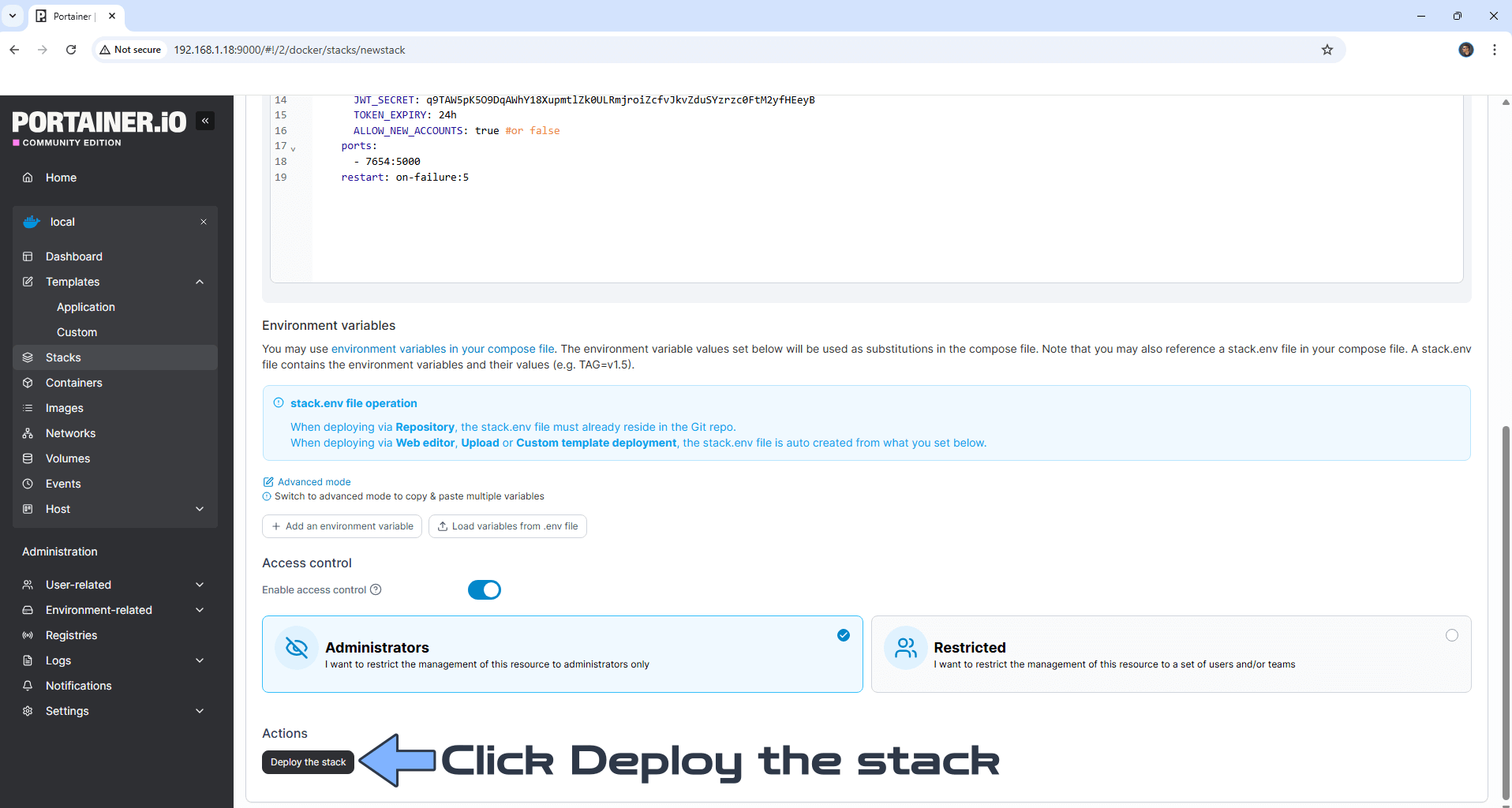
STEP 7
If everything goes right, you will see the following message at the top right of your screen: “Success Stack successfully deployed“.

STEP 8
🟢Please Support My work by Making a Donation. Almost 99,9% of the people that install something using my guides forget to support my work, or just ignore STEP 1. I’ve been very honest about this aspect of my work since the beginning: I don’t run any ADS, I don’t require subscriptions, paid or otherwise, I don’t collect IPs, emails, and I don’t have any referral links from Amazon or other merchants. I also don’t have any POP-UPs or COOKIES. I have repeatedly been told over the years how much I have contributed to the community. It’s something I love doing and have been honest about my passion since the beginning. But I also Need The Community to Support me Back to be able to continue doing this work.
STEP 9
The installation process can take up to a few minutes or less, seconds. It will depend on your Internet speed connection. Now open your browser and type in http://Synology-ip-address:7654 Type in your own Username and Password, then click Create Account. Follow the instructions in the image below.
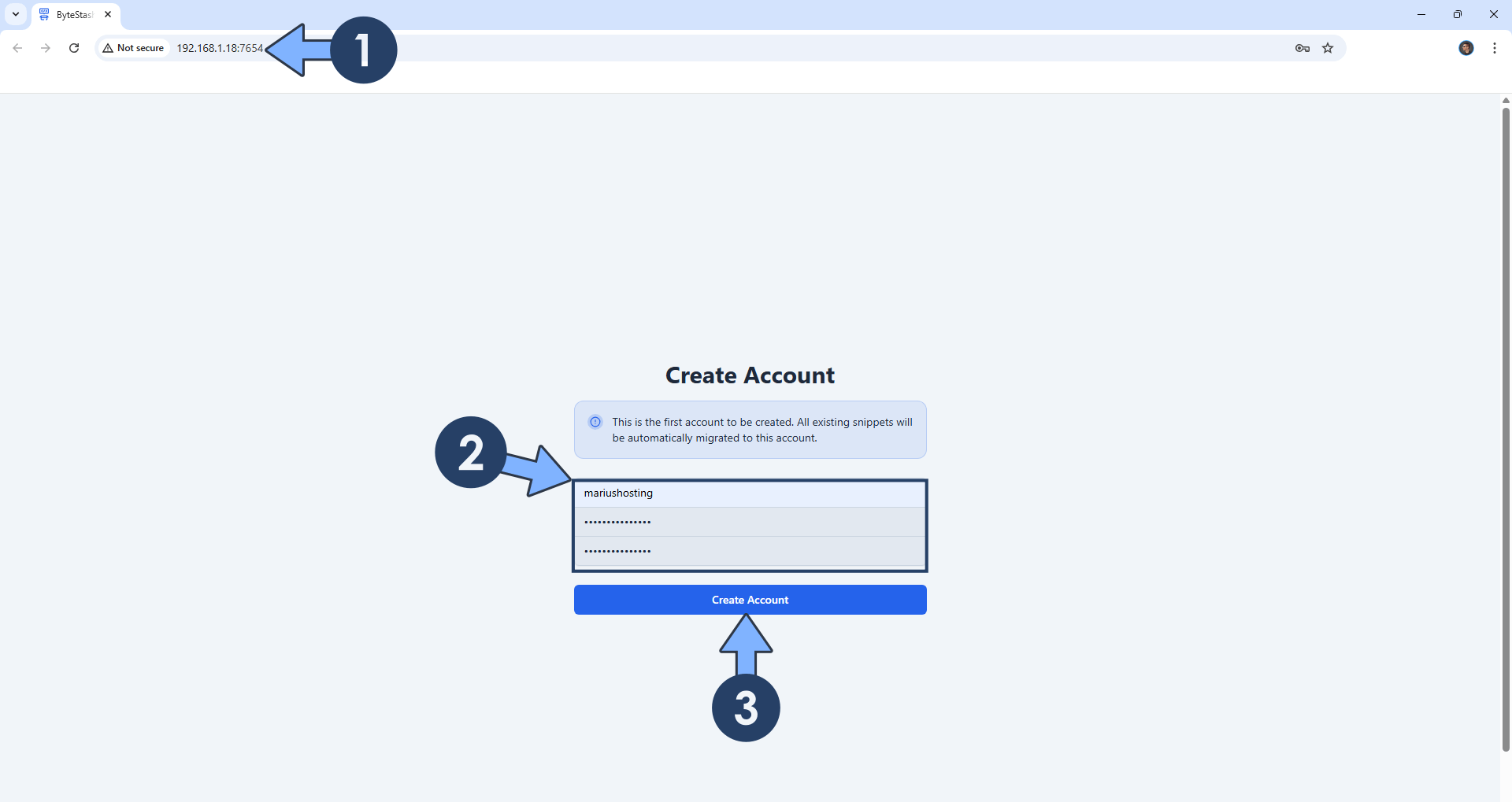
STEP 10
At the top right of the page, click on the settings icon. A new pop up window will open. Switch the theme to Dark. Scroll down the window until you see the Save button. Follow the instructions in the image below.
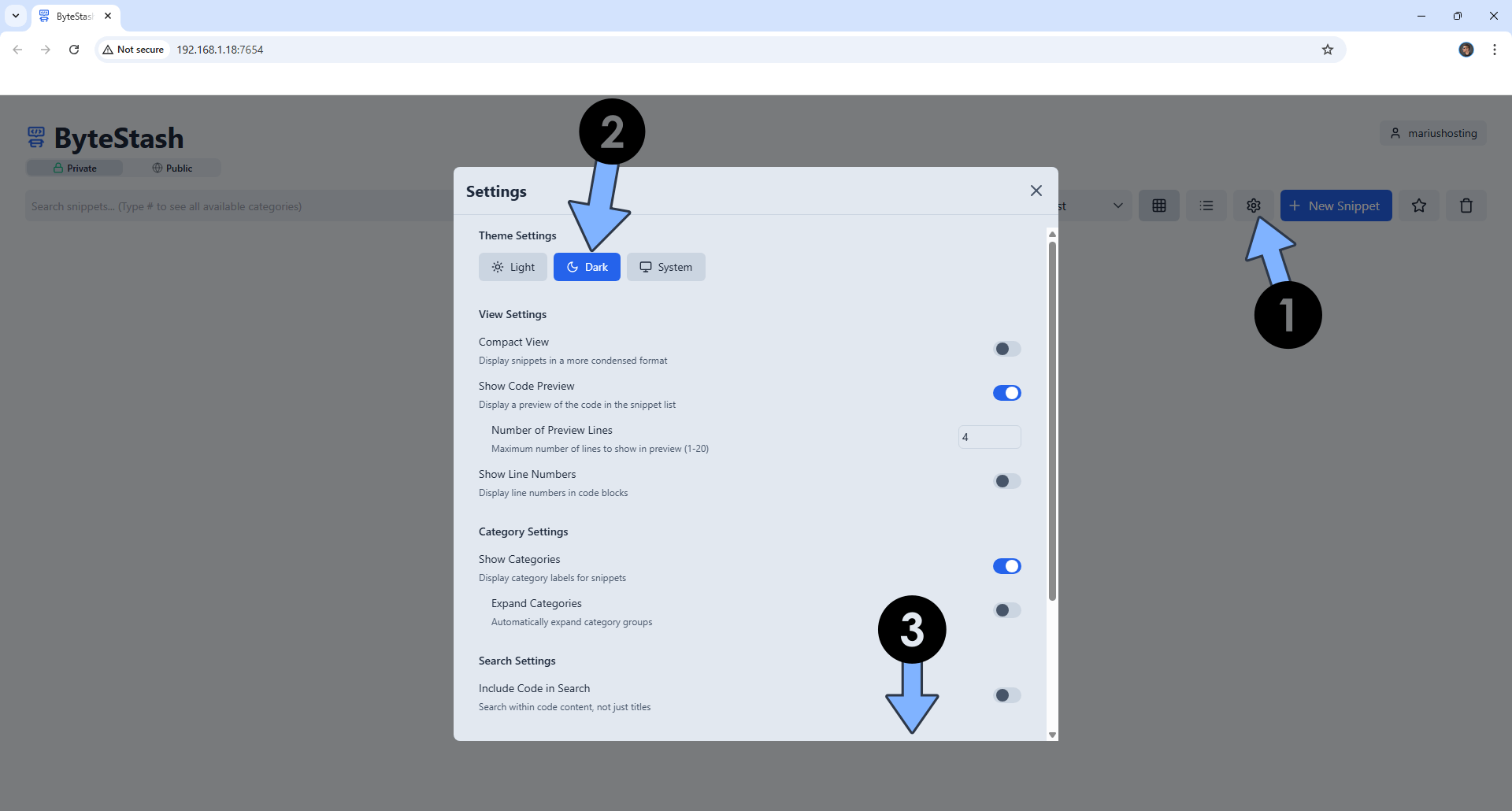
STEP 11
Click Save. Follow the instructions in the image below.
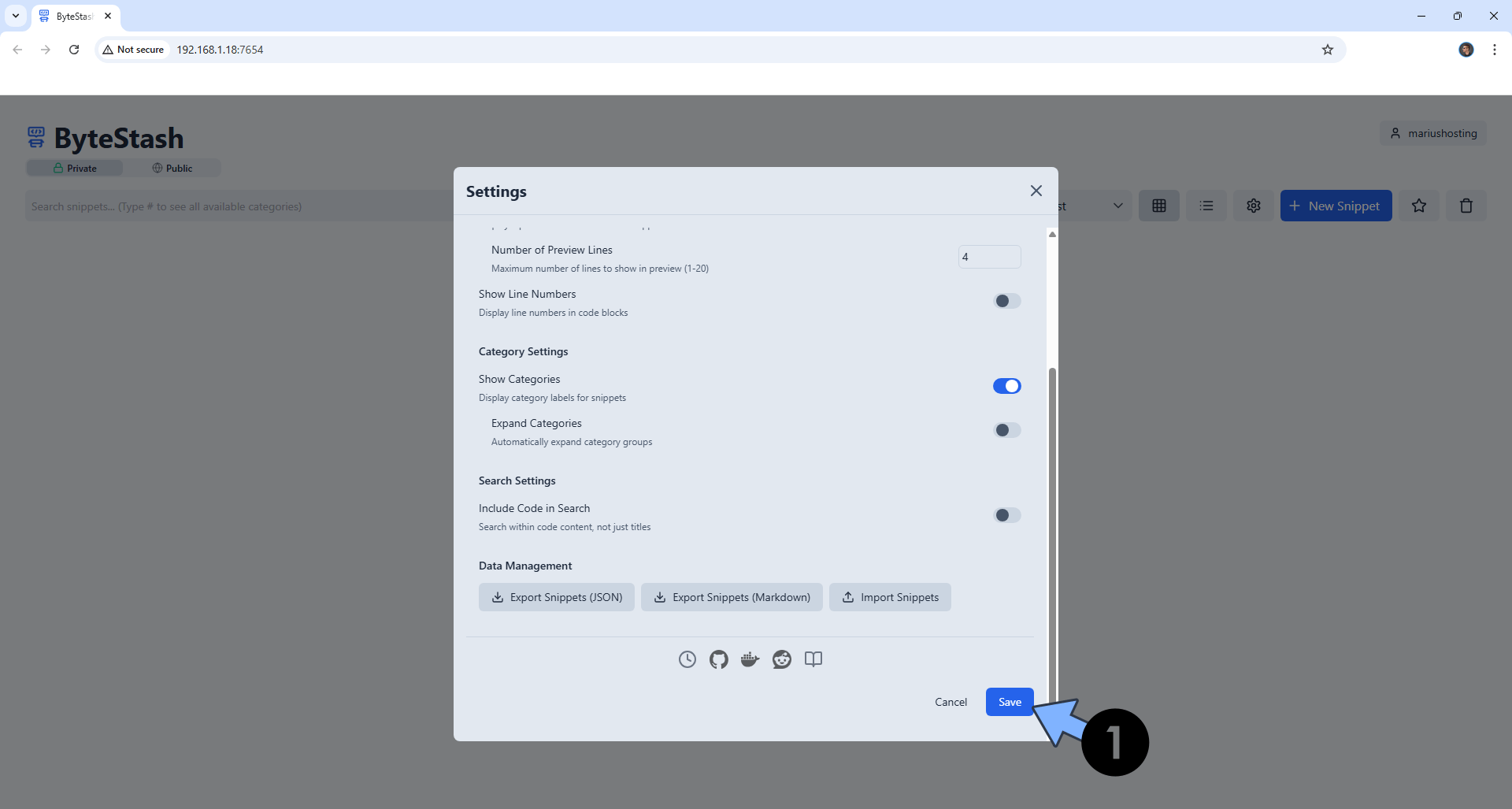
STEP 12
Click + New Snippet to add your code snippet. Follow the instructions in the image below.
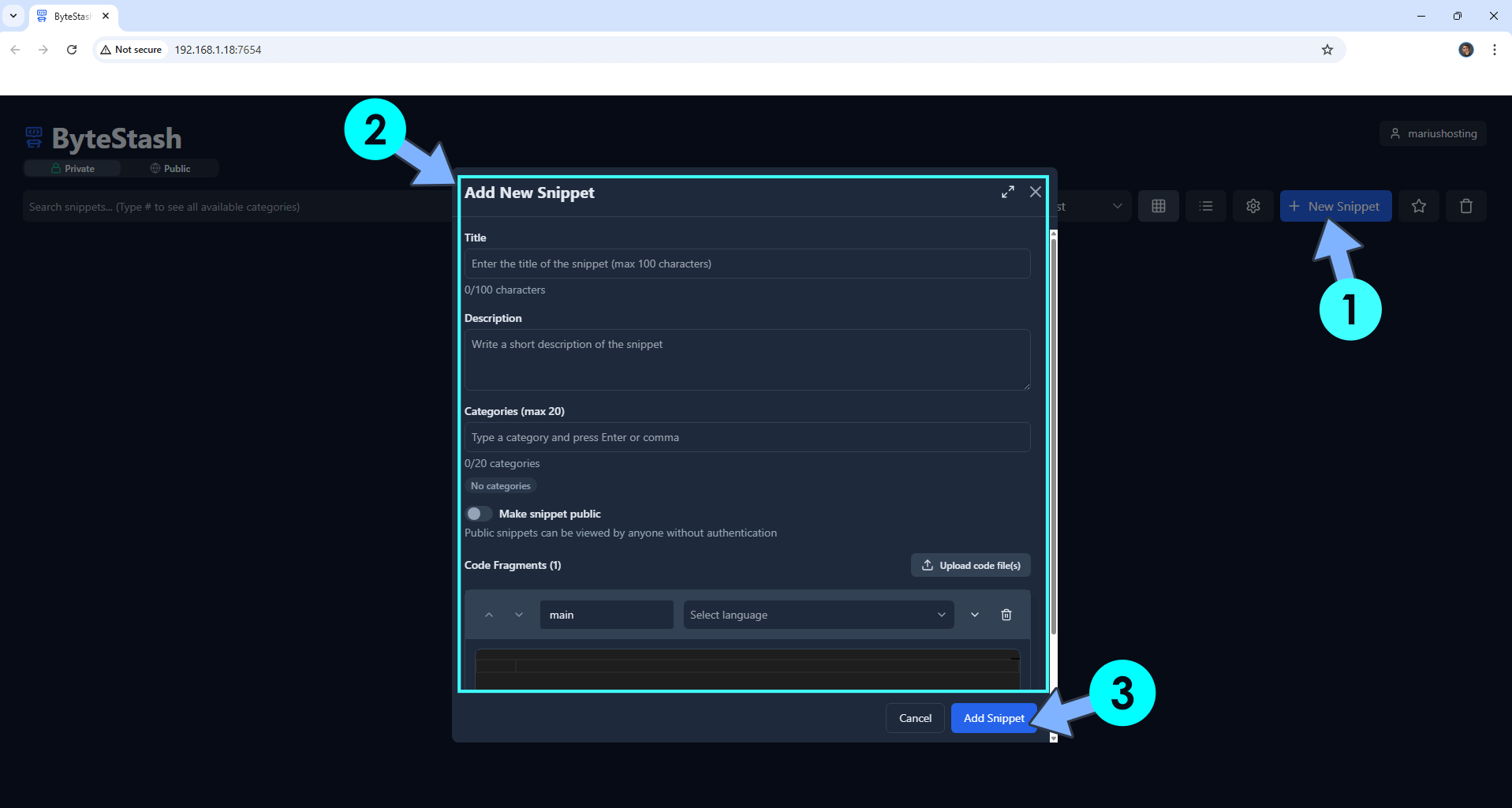
STEP 13
Your ByteStash dashboard with code snippets at a glance!

STEP 14
If you want to disable user registration in ByteStash after registering the first user, just change the following line in the compose at STEP 5:
ALLOW_NEW_ACCOUNTS: truewith the following one:
ALLOW_NEW_ACCOUNTS: falseClick update the stack to update the settings. From this point on, any user that will try to register a new account in ByteStash will be rejected.
Enjoy ByteStash!
If you encounter issues by using this container, make sure to check out the Common Docker issues article.
Note: If you want to run the ByteStash container over HTTPS, check How to Run Docker Containers Over HTTPS. In order to make ByteStash work via HTTPS, it’s mandatory to activate WebSocket.
Note: Can I run Docker on my Synology NAS? See the supported models.
Note: Find out how to update the ByteStash container with the latest image.
Note: How to Back Up Docker Containers on your Synology NAS.
Note: How to Free Disk Space on Your NAS if You Run Docker.
Note: How to Schedule Start & Stop For Docker Containers.
Note: How to Activate Email Notifications.
Note: How to Add Access Control Profile on Your NAS.
Note: How to Change Docker Containers Restart Policy.
Note: How to Use Docker Containers With VPN.
Note: Convert Docker Run Into Docker Compose.
Note: How to Clean Docker.
Note: How to Clean Docker Automatically.
Note: Best Practices When Using Docker and DDNS.
Note: Some Docker Containers Need WebSocket.
Note: Find out the Best NAS Models For Docker.
Note: Activate Gmail SMTP For Docker Containers.
This post was updated on Monday / February 9th, 2026 at 3:32 AM
